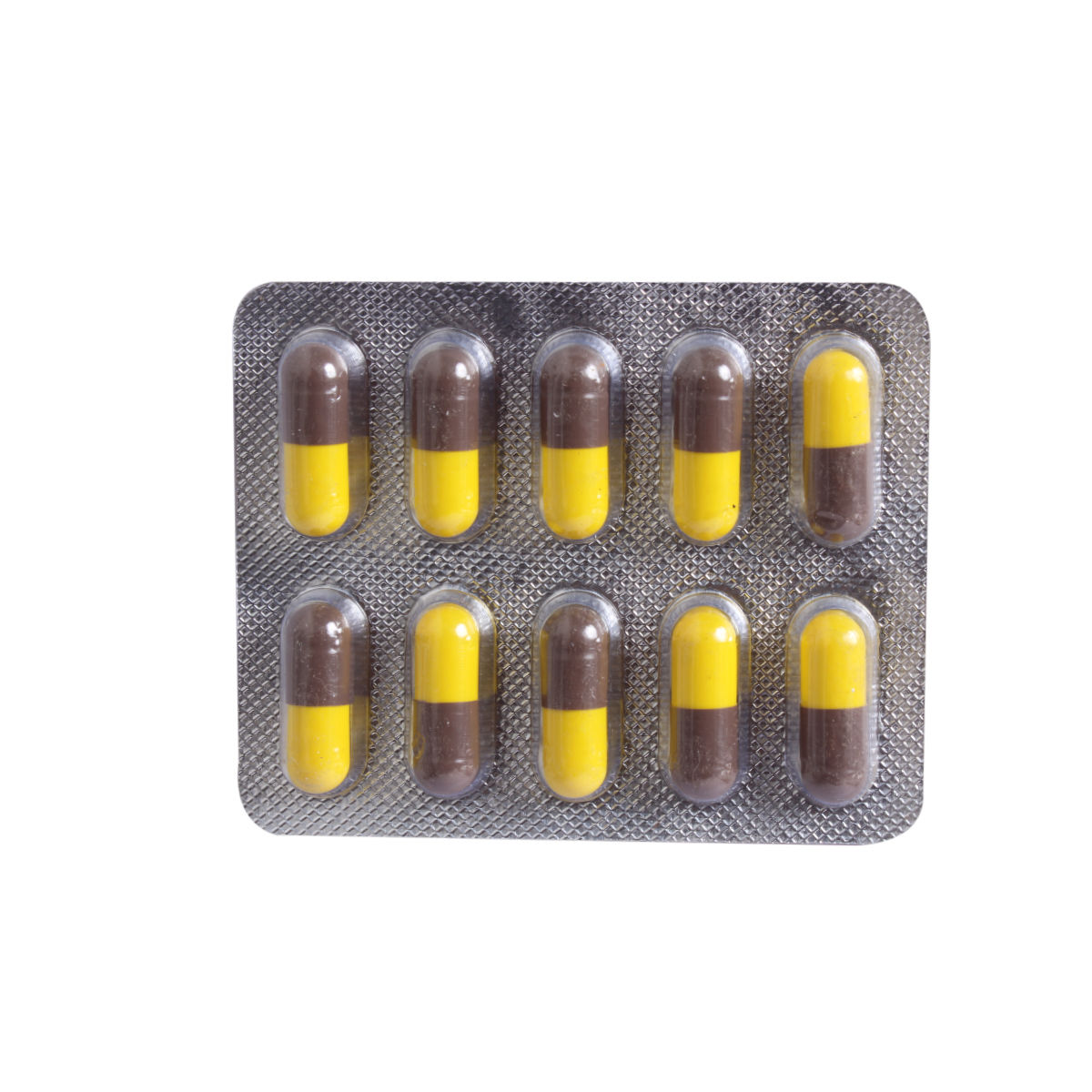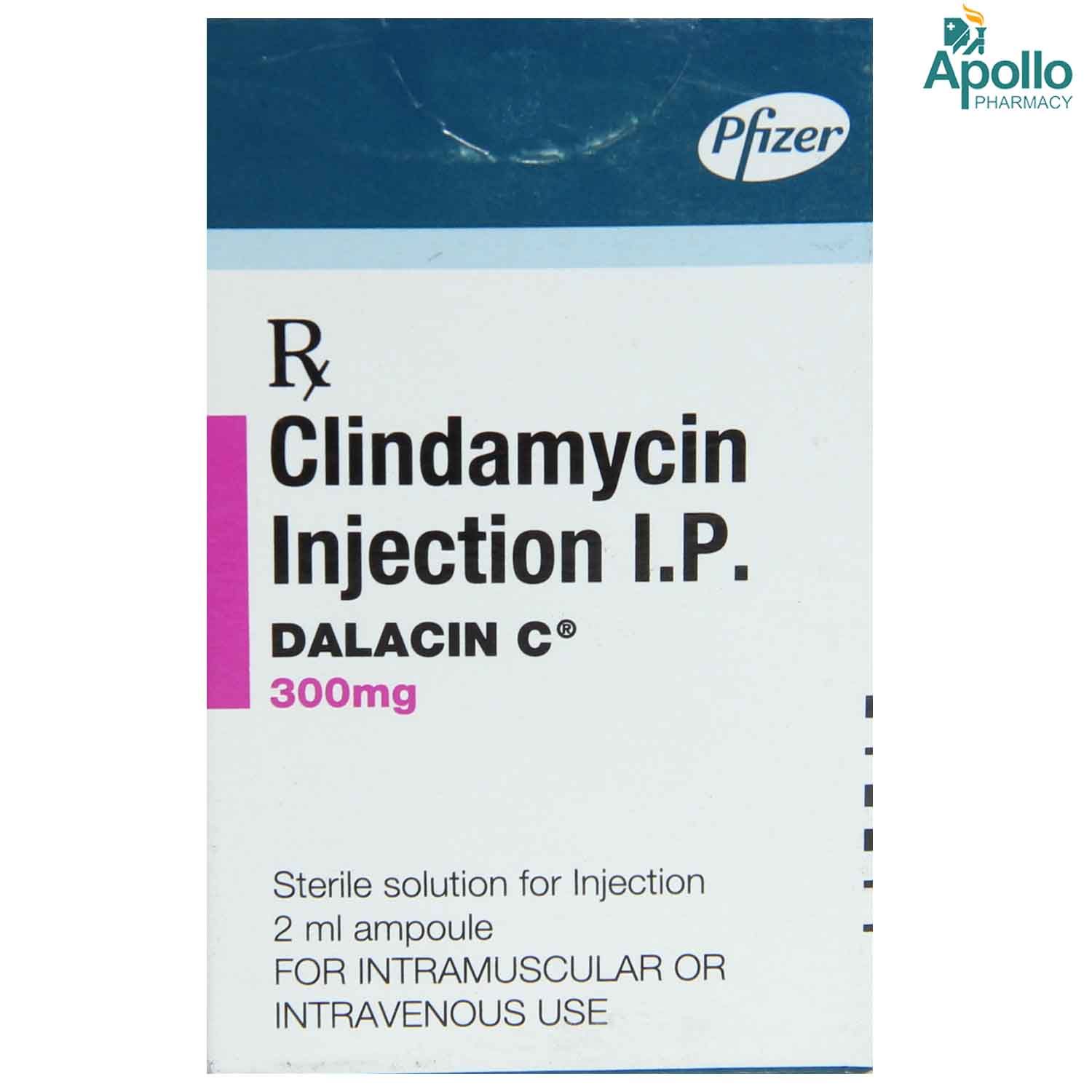Clinsol 300 mg Capsule 10's

₹250.7*
MRP ₹278.5
10% off
₹236.72*
MRP ₹278.5
15% CB
₹41.78 cashback(15%)
Free Delivery
With Circle membership
(Inclusive of all Taxes)
This offer price is valid on orders above ₹800. Apply coupon PHARMA10/PHARMA18 (excluding restricted items)
Know Your Delivery Time
Provide Delivery Location
Available Offers
 Prescription drug
Prescription drugWhats That

Secure Payment

India's Most Trusted Pharmacy

Genuine Products
Composition :
Manufacturer/Marketer :
Consume Type :
Return Policy :
Expires on or after :
About Clinsol 300 mg Capsule
Clinsol 300 mg Capsule is used to treat bacterial infections. Bacterial infection occurs when harmful bacteria grow in the body and cause illness. It can infect any part of the body and multiply very quickly. Clinsol 300 mg Capsule will not work for viral infections, such as the common cold and flu.
Clinsol 300 mg Capsule contains 'Clindamycin' that works by preventing bacterial protein synthesis, leading to the inhibition of bacterial growth. It shows a bacteriostatic effect that stops bacterial reproduction. Clinsol 300 mg Capsule effectively treats infections caused by gram-positive and anaerobic (living without air) bacteria, including susceptible strains of Staphylococcus aureus, Streptococcus pneumoniae, and Clostridium perfringens.
Take Clinsol 300 mg Capsule as advised by a doctor. Clinsol 300 mg Capsule may cause side effects, although not everybody gets them. Common side effects of Clinsol 300 mg Capsule include stomach pain, nausea, vomiting, diarrhoea, heartburn, skin rash, and vaginal itching or discharge. Most of these side effects do not require medical attention and gradually resolve over time. If these side effects persist longer, please consult your doctor.
Inform the doctor if you are allergic to any of the components in Clinsol 300 mg Capsule . Let your doctor know if you have any liver disease, kidney disease, gastrointestinal diseases (colitis, an inflammation of the colon), yellow food dye allergy, or allergic conditions (asthma, hay fever, eczema). Do not use Clinsol 300 mg Capsule while getting vaccinated with live bacterial vaccines (typhoid vaccine) since Clinsol 300 mg Capsule may affect vaccine activity. Clinsol 300 mg Capsule should be used only with a doctor's advice during pregnancy and breastfeeding.
Uses of Clinsol 300 mg Capsule
Directions for Use
Medicinal Benefits
Clinsol 300 mg Capsule is an antibiotic that treats bacterial infections. It works by inhibiting bacterial protein synthesis, which inhibits bacterial growth. It shows a bacteriostatic effect, which stops bacterial reproduction but doesn't kill them. Clinsol 300 mg Capsule effectively treats infections caused by gram-positive and anaerobic (living without air) bacteria, including susceptible strains of Staphylococcus aureus, Streptococcus pneumoniae, and Clostridium perfringens.
How Clinsol 300 mg Capsule Works
Storage
Side Effects of Clinsol 300 mg Capsule
Stomach pain
Nausea
Vomiting
Diarrhoea
Heartburn
Skin rash
Vaginal itching or discharge
What if I have taken an overdose of Clinsol 300 mg Capsule
Drug Warnings
Do not use Clinsol 300 mg Capsule if you are allergic to any of its components. Let your doctor know if you have any liver or kidney diseases, gastrointestinal diseases (colitis, Clostridium difficile-associated diarrhoea), yellow food dye allergy, and allergic conditions (asthma, hay fever, eczema). Do not use Clinsol 300 mg Capsule while getting vaccinated with live bacterial vaccines (typhoid vaccine) since Clinsol 300 mg Capsule may affect vaccine activity. Pregnant and breastfeeding women should consult their doctor before taking Clinsol 300 mg Capsule . Clinsol 300 mg Capsule should be used in children only when prescribed by a doctor.
Drug-Drug Interactions
Drug-Drug Interactions
Login/Sign Up
Coadministration of use of Clinsol 300 mg Capsule with ketoconazole can increase the effects of Clinsol 300 mg Capsule.
How to manage the interaction:
Although there is a possible interaction, Clinsol 300 mg Capsule can be taken with ketoconazole if prescribed by the doctor. Consult the prescriber if you experience persistent vomiting, nausea, abdominal pain or diarrhea. Do not discontinue any medication without consulting a doctor. Do not discontinue any medication without consulting a doctor.
Co-administration of Clinsol 300 mg Capsule with Atazanavir may increase the effects of Clinsol 300 mg Capsule.
How to manage the interaction:
Although there is a possible interaction, Clinsol 300 mg Capsule can be taken with atazanavir if prescribed by the doctor. Consult the prescriber if you experience persistent nausea, vomiting, diarrhea, or abdominal pain. Do not discontinue the medication without consulting a doctor.
Taking Clinsol 300 mg Capsule with clarithromycin may increase the effects of Clinsol 300 mg Capsule.
How to manage the interaction:
Although there is a possible interaction, Clinsol 300 mg Capsule can be taken with clarithromycin if prescribed by the doctor. Consult the prescriber if you experience persistent vomiting, nausea, abdominal pain, or diarrhea. Do not discontinue the medication without consulting a doctor.
Taking Clinsol 300 mg Capsule with Botulinum toxin can increase the risk or severity of side effects.
How to manage the interaction:
Taking Clinsol 300 mg Capsule with Botulinum toxin together can result in an interaction, they can be taken together if prescribed by a doctor. However, if you experience any unusual symptoms contact a doctor immediately. Do not discontinue any medications without consulting a doctor.
Co-administration of of Clinsol 300 mg Capsule with gentamicin may increase the risk of kidney and/or nerve damage.
How to manage the interaction:
Although there is a possible interaction, Clinsol 300 mg Capsule can be taken with gentamicin if prescribed by the doctor. Consult the prescriber if you experience signs and symptoms of kidney damage such as sudden weight gain or weight loss, nausea, vomiting, fluid retention, loss of appetite, increased or decreased urination, swelling, shortness of breath, muscle cramps, tiredness, weakness, dizziness, confusion, and irregular heart rhythm. If you develop diarrhea or vomiting during treatment with these medications, drink plenty of fluids to prevent dehydration, as dehydration may also harm the kidney.
When Ethinylestradiol and Clinsol 300 mg Capsule are taken together, the effects of Clinsol 300 mg Capsule can be reduced.
How to manage the interaction:
There may be a possibility of interaction between Ethinylestradiol and Clinsol 300 mg Capsule, but it can be taken if prescribed by a doctor. Do not stop using any medications without a doctor's advice.
Co-administration of Clinsol 300 mg Capsule may reduce the activity of the cholera vaccine.
How to manage the interaction:
Talk to your doctor before receiving the Cholera vaccine if you are currently being treated with Clinsol 300 mg Capsule or have been treated within the last 14 days. To ensure adequate vaccine response, you should not receive cholera vaccine until at least 14 days after you complete antibiotic therapy. Do not discontinue the medication without consulting a doctor.
Co-administration of Boceprevir together with Clinsol 300 mg Capsule can increase the effects of Clinsol 300 mg Capsule.
How to manage the interaction:
Although there is a possible interaction between Clinsol 300 mg Capsule and Boceprevir, you can take these medicines together if prescribed by your doctor. If you have ongoing feelings of sickness, throwing up, having loose stools, or pain in your stomach, it's important to contact your doctor right away. Do not stop using any medications without a doctor's advice.
Co-administration of Capreomycin with Clinsol 300 mg Capsule can increase the risk of kidney or nerve damage.
How to manage the interaction:
There may be a possibility of interaction between Clinsol 300 mg Capsule and Capreomycin, but it can be taken if prescribed by a doctor. Do not discontinue any medications without first consulting your doctor.
When Clinsol 300 mg Capsule is taken with Fosphenytoin, it can cause the body to process Clinsol 300 mg Capsule faster.
How to manage the interaction:
Although there is a possible interaction between Clinsol 300 mg Capsule and Fosphenytoin, you can take these medicines together if prescribed by your doctor. If you notice any symptoms like sudden drowsiness, fatigue, confusion, itching, burning, or tingling sensation, abnormal body movements, or loss of coordination, make sure to contact your doctor right away. Do not stop using any medications without first talking to your doctor.
Drug-Food Interactions
Drug-Food Interactions
Login/Sign Up
Diet & Lifestyle Advise
Include whole-grain foods like multigrain bread and brown rice in your diet.
Taking probiotics after an antibiotic treatment reduces the risk of antibiotic-associated diarrhoea.
Try taking yoghurt, cheese, sauerkraut, and kimchi that help restore the intestine's good bacteria.
Include more fibre-enriched food in your diet that is easily digested by your gut bacteria. Fibre foods may also help restore healthy gut bacteria after a course of antibiotics.
Avoid intake of alcoholic beverages as it can make you dehydrated and affect your sleep.
Manage stress, eat healthily, drink plenty of water, exercise regularly, and get plenty of sleep.
Habit Forming
Therapeutic Class
Clinsol 300 mg Capsule Substitute

Dalacin C 300 mg Capsule 10's
by Others
₹26.18per tabletClindatec 300 mg Capsule 8's
by Others
₹25.31per tabletClindasure 300mg Capsule 10's
by AYUR
₹26.78per tabletClincin 300 mg Capsule 10's
by Others
₹26.78per tabletCamyda 300 Capsule 10's
by AYUR
₹26.78per tablet
Product Substitutes
Alcohol
Caution
Avoid taking alcohol while using Clinsol 300 mg Capsule since it may worsen the side effects.
Pregnancy
Caution
Please consult your doctor before taking Clinsol 300 mg Capsule if you are pregnant or planning to conceive.
Breast Feeding
Caution
Clinsol 300 mg Capsule is not recommended during breastfeeding since it can be excreted into breast milk. Please consult your doctor before taking Clinsol 300 mg Capsule if you are breastfeeding.
Driving
Safe if prescribed
Clinsol 300 mg Capsule usually does not interfere with your driving ability.
Liver
Caution
Let your doctor know if you have any history of liver diseases before taking Clinsol 300 mg Capsule since it may cause jaundice and abnormal liver function tests.
Kidney
Caution
Let your doctor know if you have any history of kidney diseases before taking Clinsol 300 mg Capsule .
Children
Caution
Clinsol 300 mg Capsule should be used in children only when prescribed by a doctor. Your doctor will prescribe the dose depending on the child's age and body weight.
FAQs
Country of origin
Manufacturer/Marketer address
Disclaimer
Author Details
We provide you with authentic, trustworthy and relevant information


















